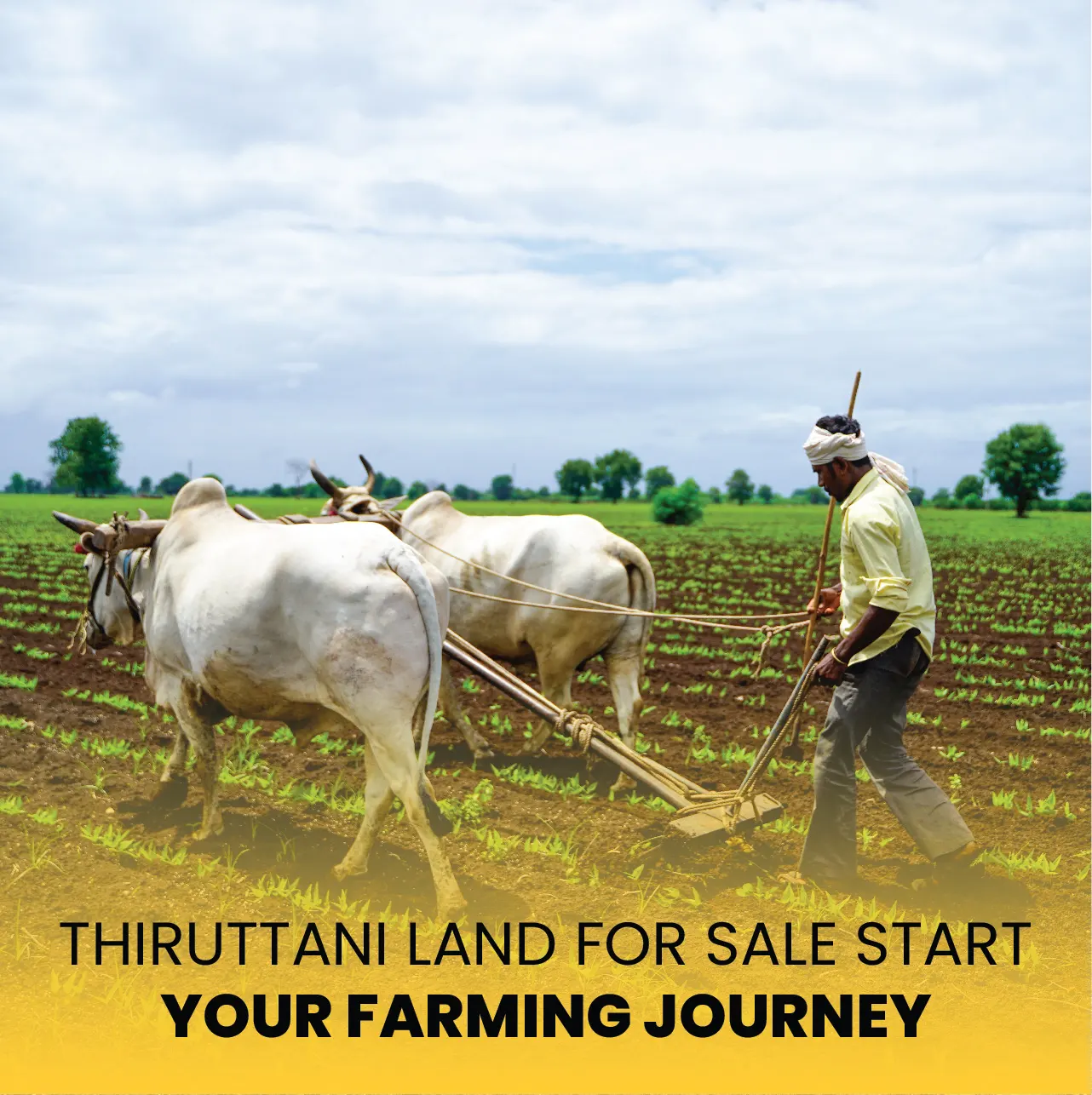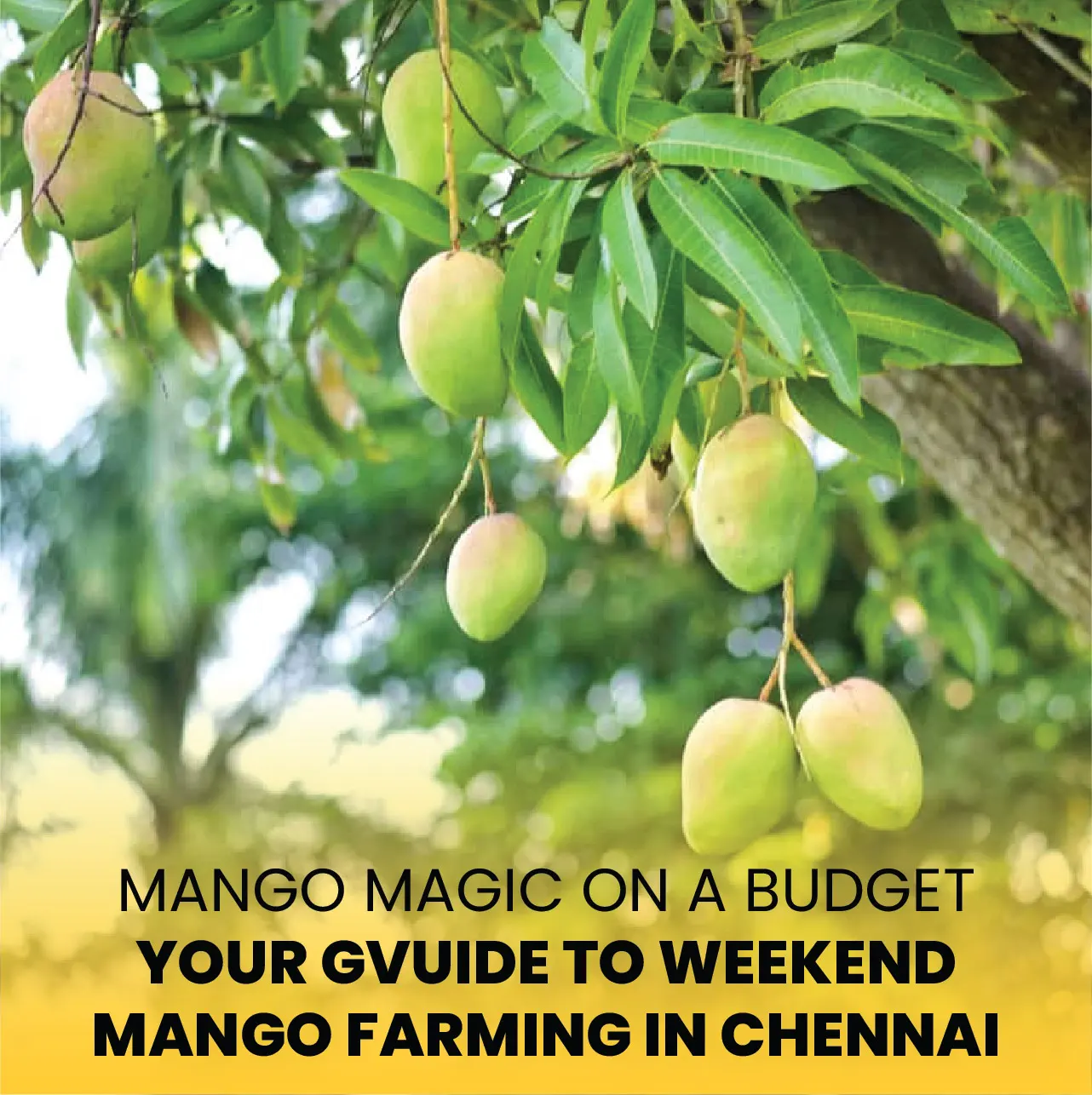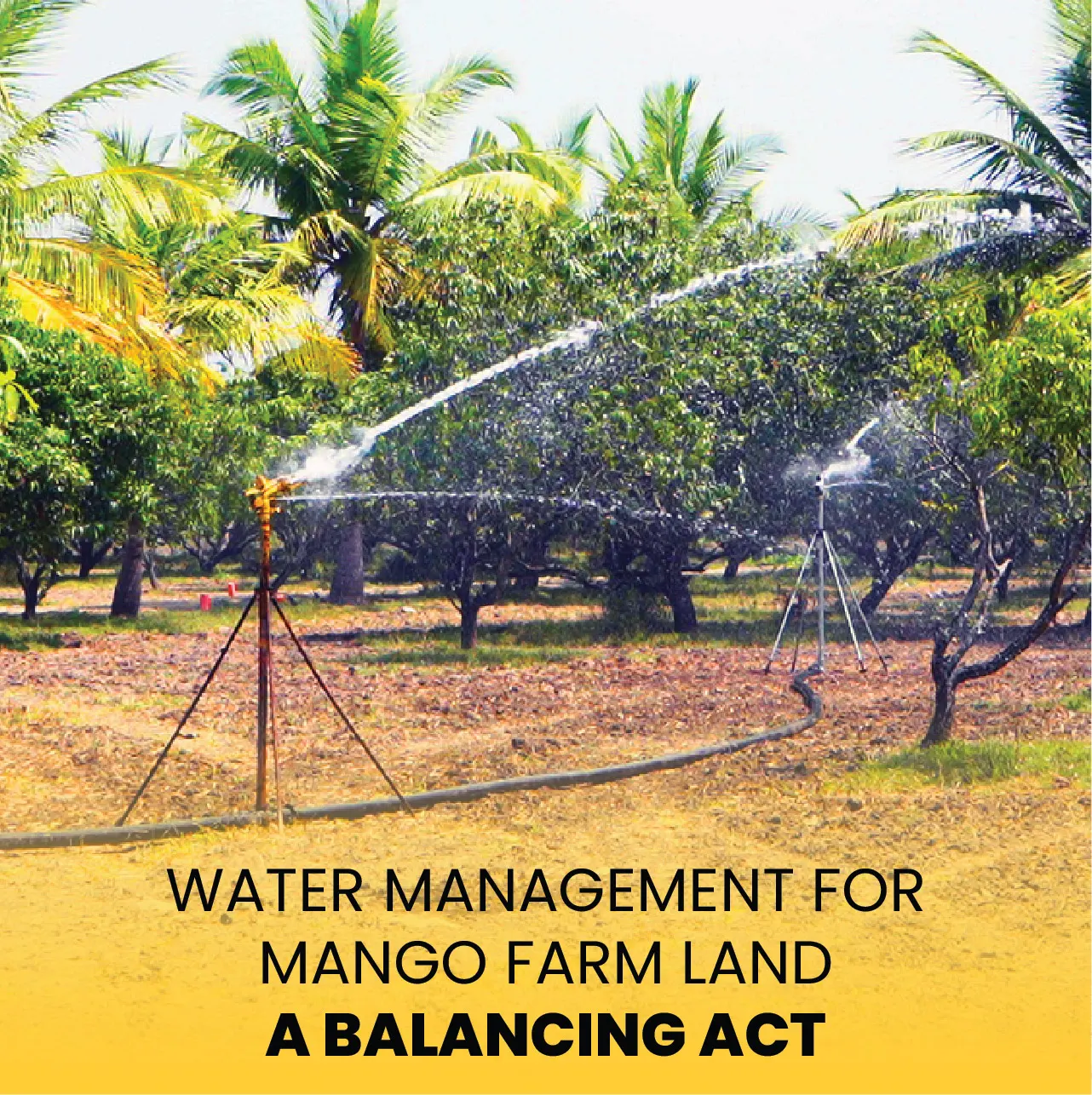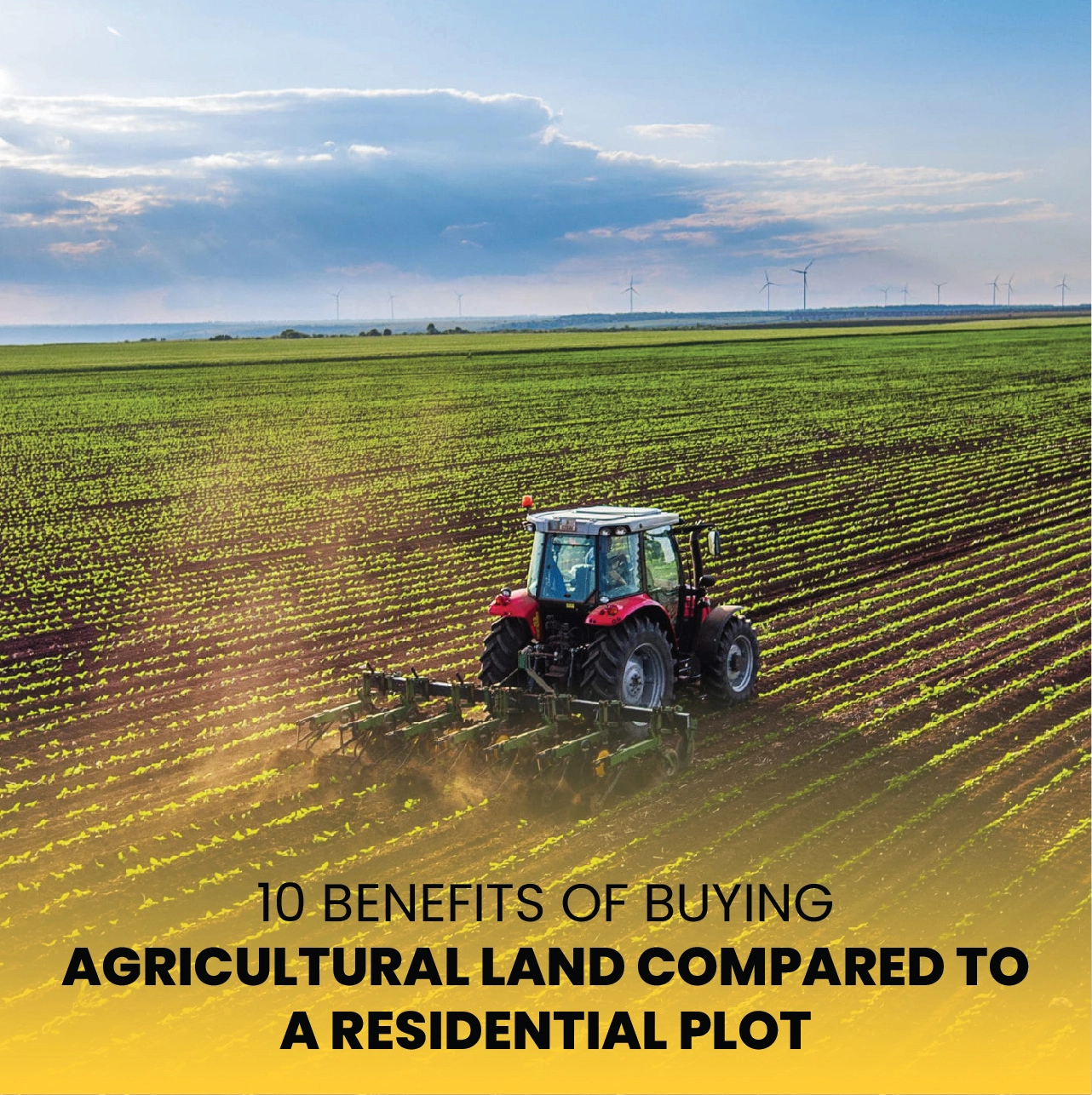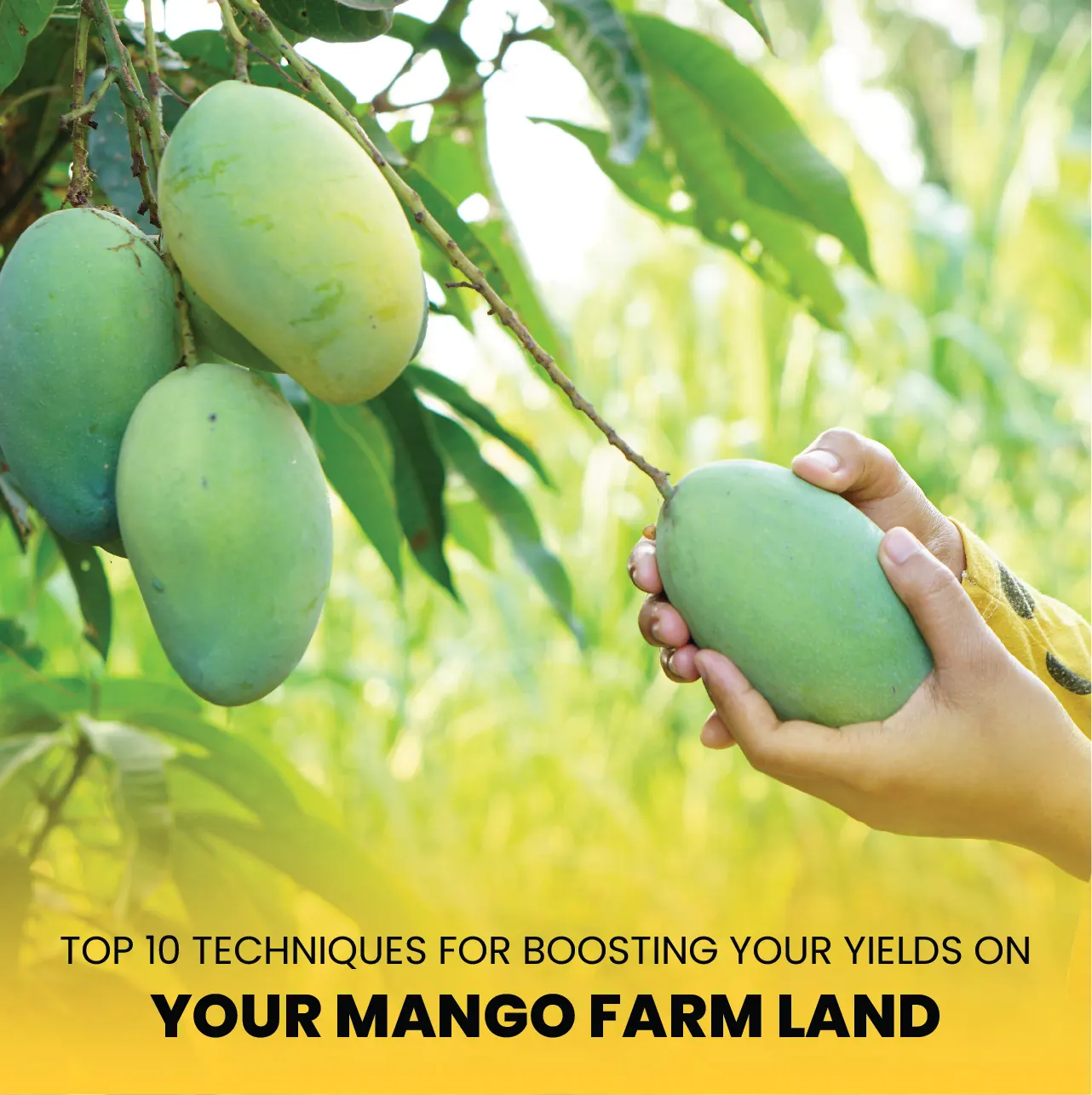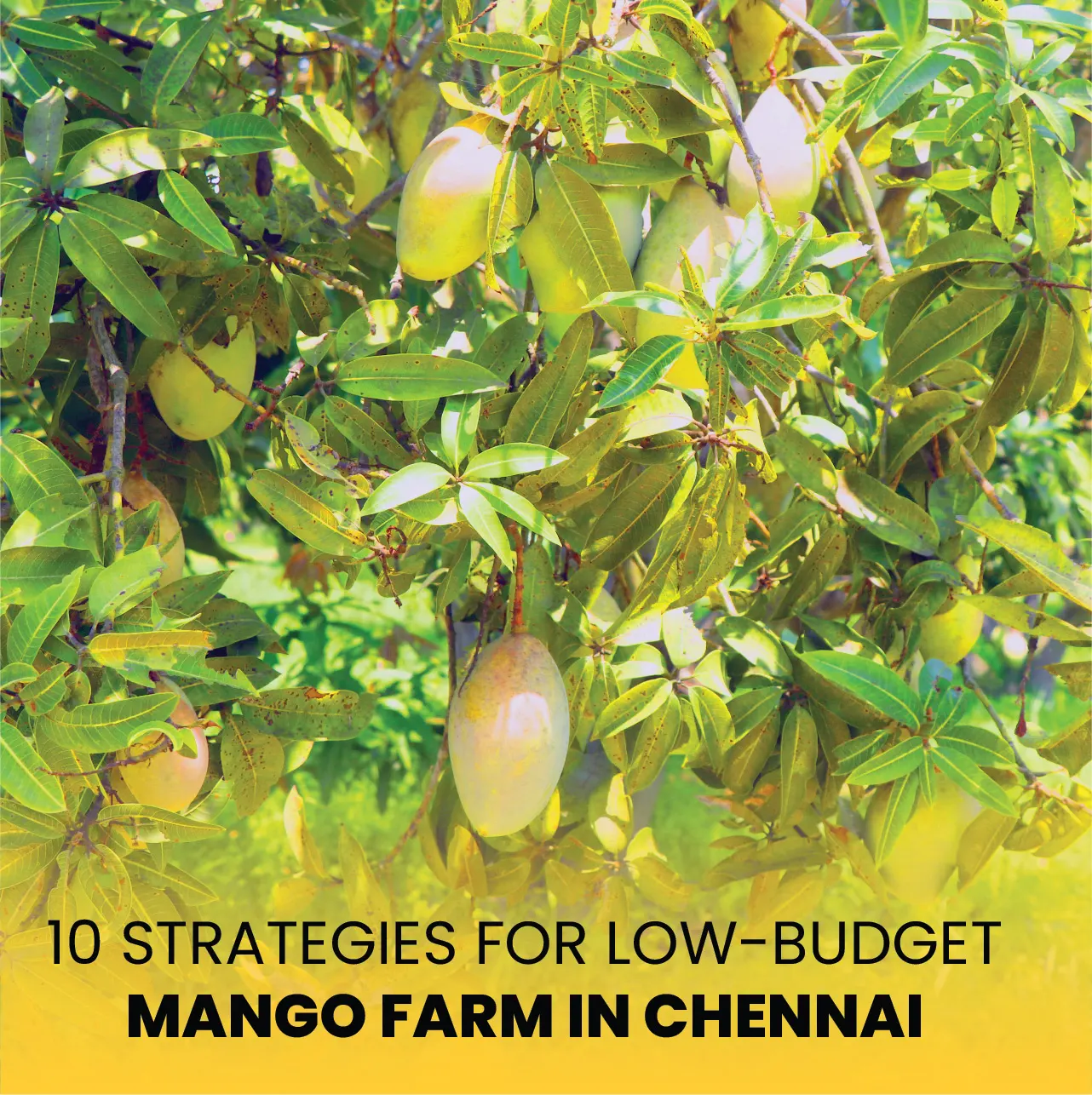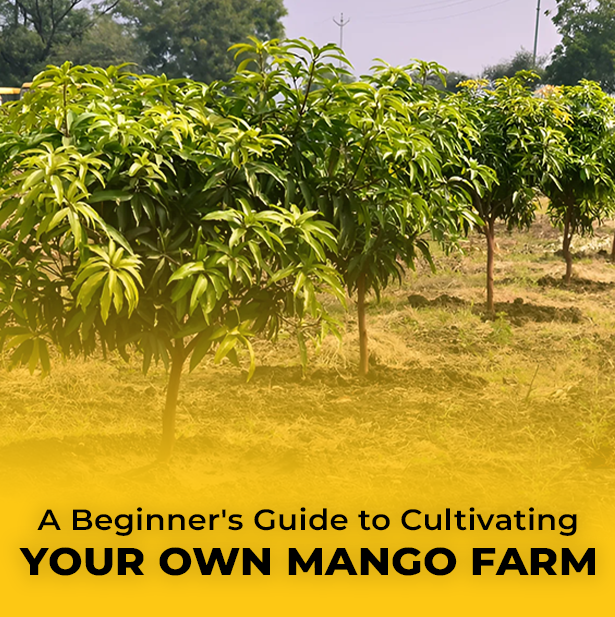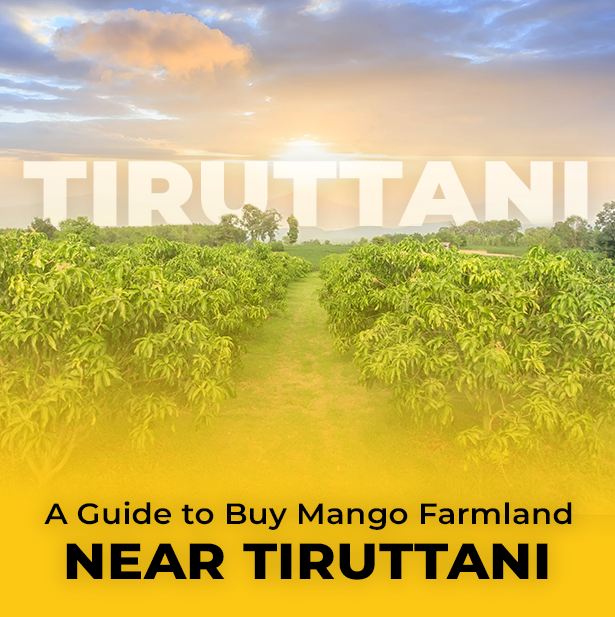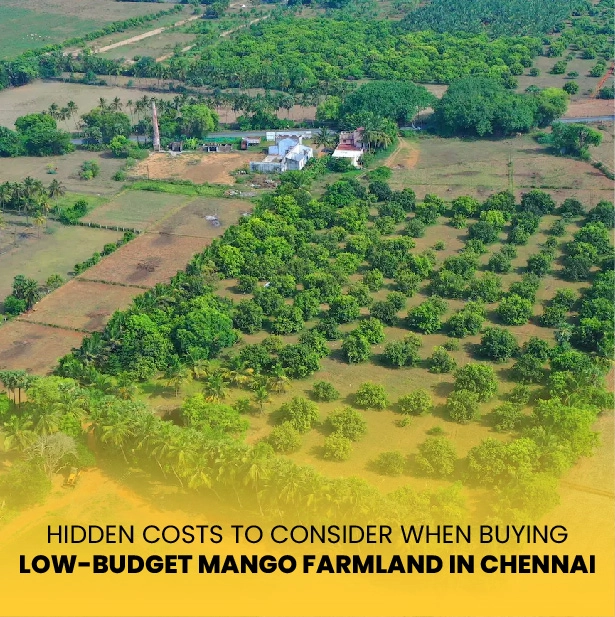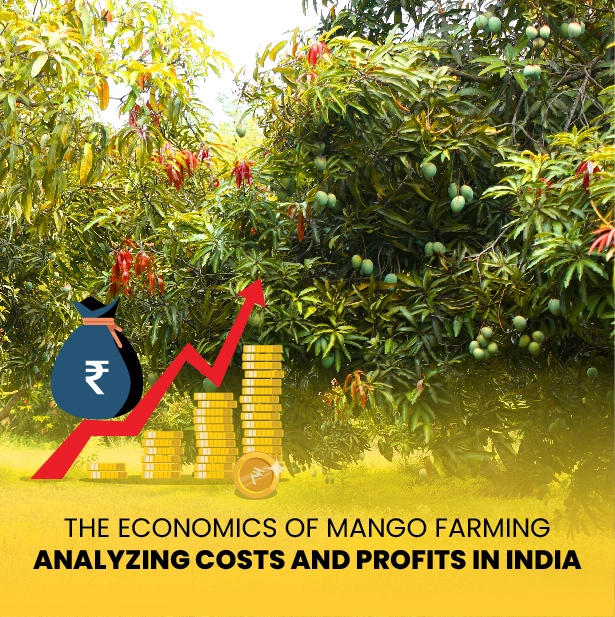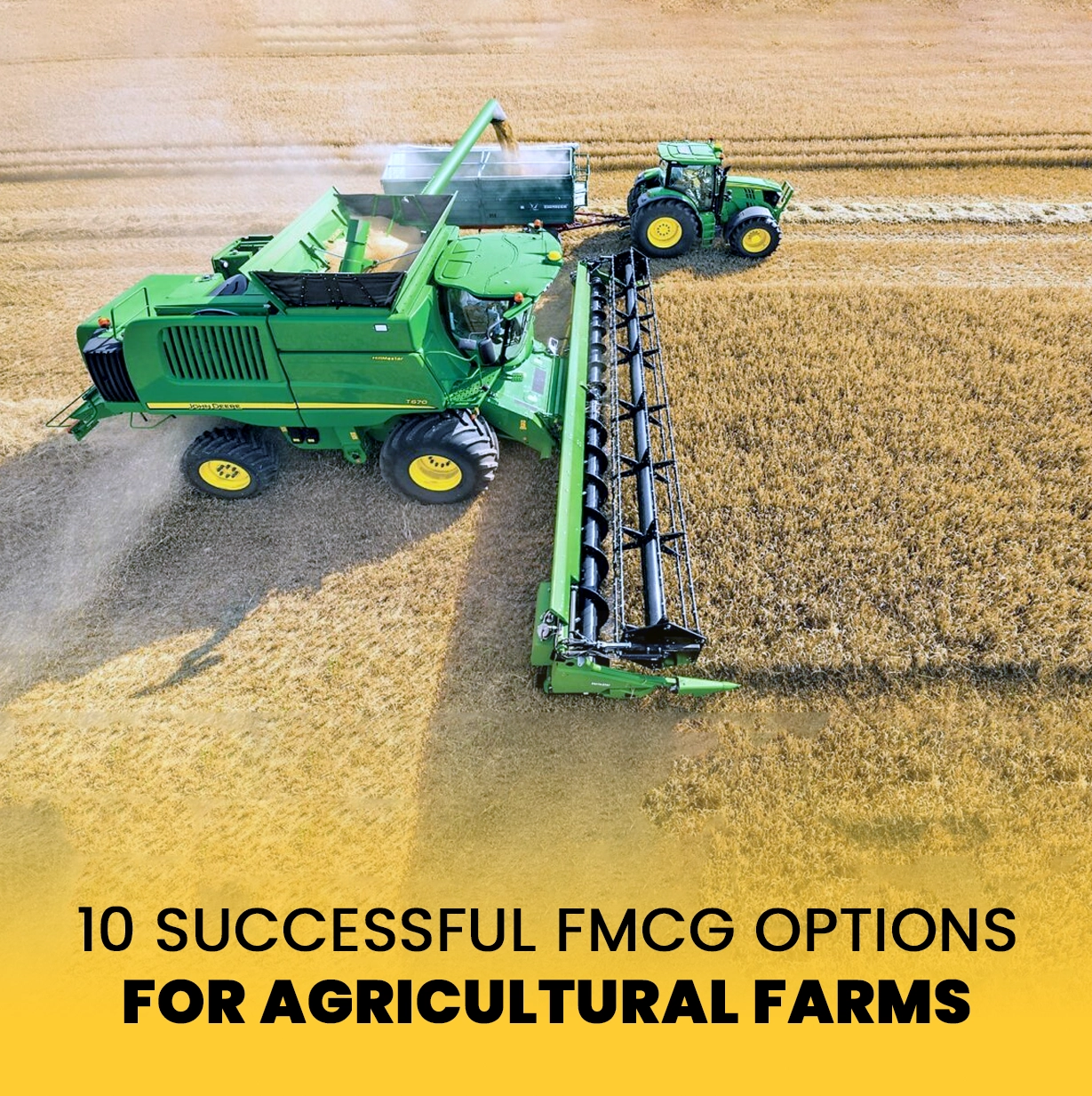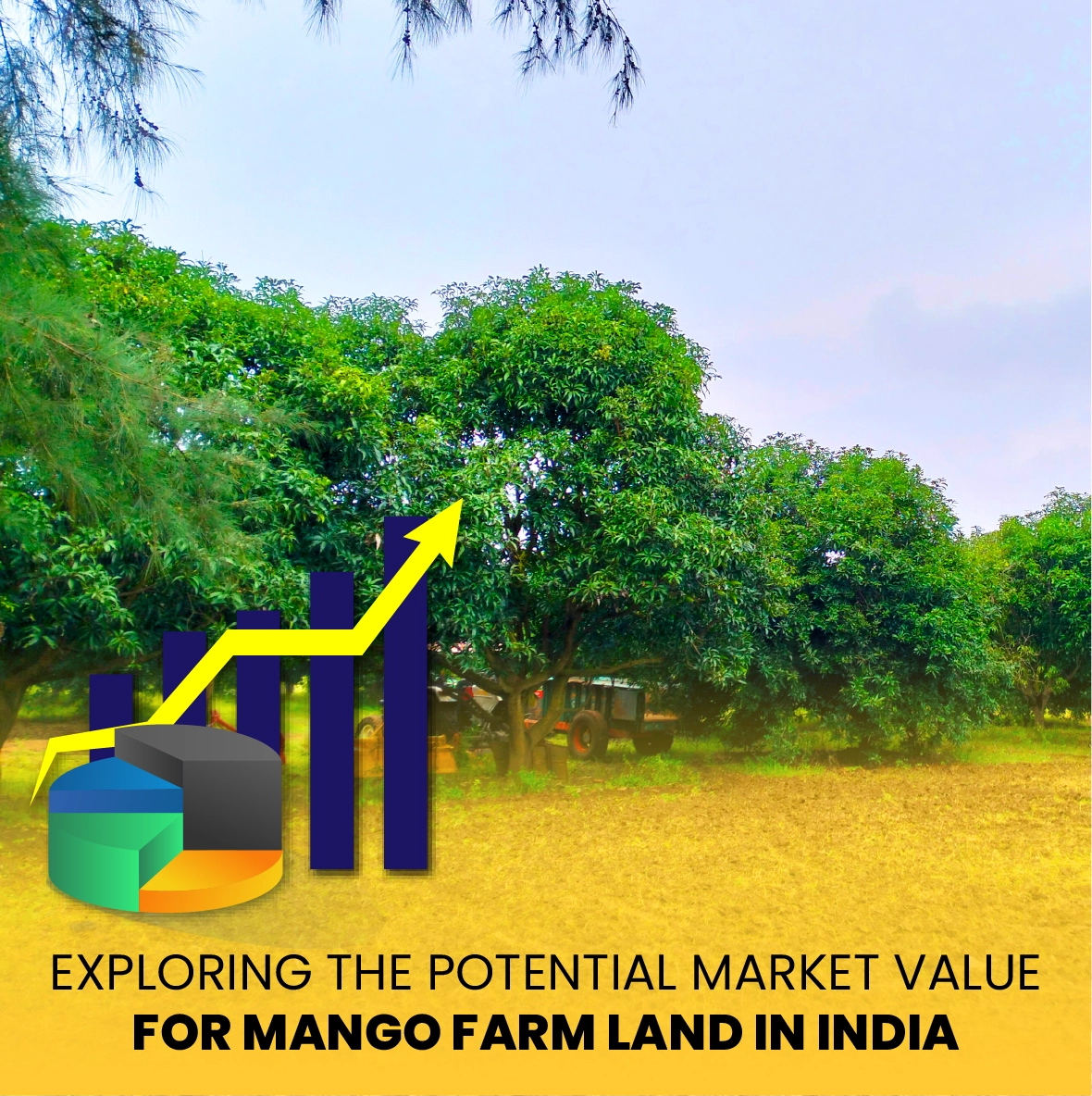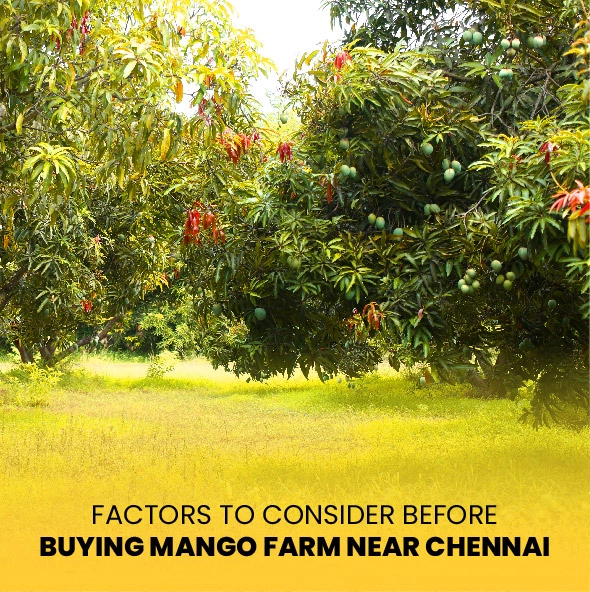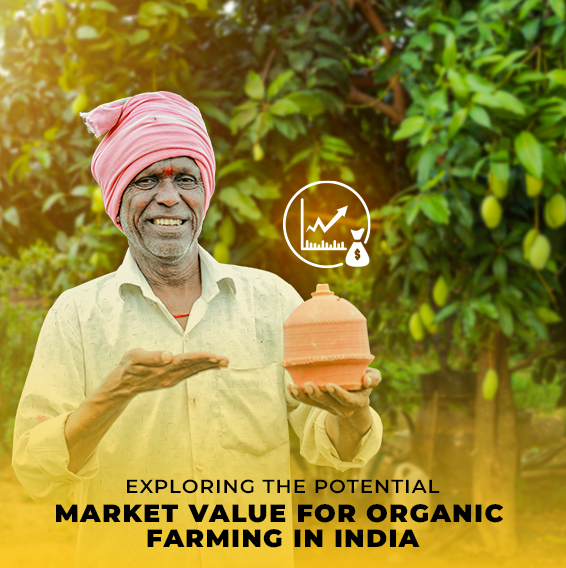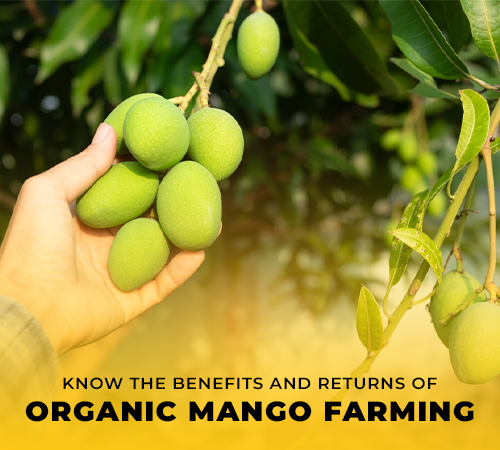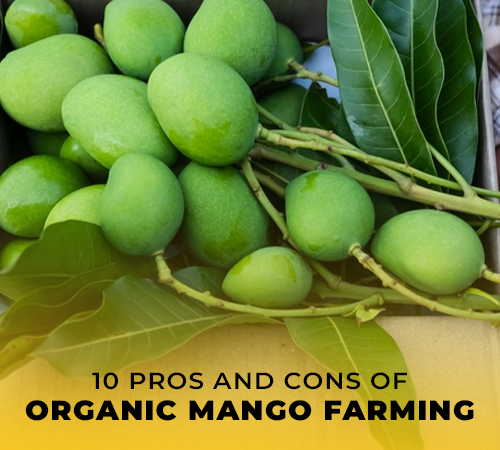Mangoes are far more than just a delicious fruit; they have been grown for generations in tropical and subtropical regions. Mangoes have a major influence on populations and ecosystems and are significant to the economic and environmental landscapes of many countries. This blog examines the various advantages of mango farming growing, highlighting its contributions to organic farming, the local economy, and environmental health.

Growing mangos is a substantial source of income, particularly in isolated areas with few job options. Millions of people are employed in the mango industry, which includes everything from farming and harvesting to processing, distributing, and processing again. In addition to improving local economies, this reduces poverty and improves living conditions. Growing mangos, for instance, gives farmers in countries like the Philippines and India a reliable source of income and financial stability.
Mango is a highly sought-after tropical fruit worldwide. The leading mango exporters, which include Brazil, Mexico, Thailand, and India, greatly benefit from this demand. Major foreign exchange earnings from mango exports and products help to sustain the nation's GDP and economic growth. Mango-producing nations have numerous opportunities due to the ongoing growth of the multimillion-dollar global mango market.
Even fresh mangos are quite versatile. Among the value-added products they become are juices, jams, chutneys, dried mango slices, and even cosmetics. Variety enhances financial resiliency because it gives farmers and businesses access to many revenue streams. Small and medium-sized enterprises (SMEs) in mango-producing regions often benefit from the production and export of these products, which strengthens the local economy and creates more job opportunities.
Beautiful trees and fragrant flowers can entice people to mango orchards. Agricultural tourism generates income for farmers through activities such as fruit picking, sampling, and farm tours. This boosts the local economy and promotes environmental consciousness and intercultural dialogue. Agritourism helps preserve regional history and traditions by attracting visitors seeking authentic rural experiences in mango farming.
Mango farmland has financial advantages that also extend to agricultural R&D. Better mango varieties, more efficient pest management methods, and better agricultural techniques are all the outcomes of funding research and development. Raising productivity and quality enables farmers to better meet market demands and increase profitability. Institutions and governments usually collaborate on R&D projects to foster innovation and ensure the long-term sustainability of the mango industry.
The slowing down of global warming depends on mango trees, which are potent carbon sinks. Their biomass—trunks, branches, leaves, and roots—stores the carbon dioxide (CO2) they absorb from their surroundings. Generally speaking, this process—known as carbon sequestration—lowers the atmospheric greenhouse gas content. Mango orchards, which have grown widely, have the power to significantly reduce emissions from other sectors of the economy and promote carbon sequestration projects.
Because mango orchards offer homes to a variety of plant and animal species, they can both promote and improve biodiversity. When these orchards are sustainably managed, birds, insects, and helpful microbes find a home there. Further promoting ecological balance and biodiversity are orchards with natural vegetation or mango trees intercropped with other crops. The environment benefits from this diversification, which also makes the farming system more resistant to illnesses and pests.
Mango trees are responsible for both maintaining and improving soil health. In areas where wind or heavy rain are frequent, the ability of their huge root systems to prevent soil erosion is particularly important. The soil's stability keeps the topsoil fertile and reduces the risk of landslides. Through the decomposing fruits and leaf litter, mango trees also enrich the soil with organic matter, which enhances its structure and nutrient content. Healthy soils support more variety in plant life, which also facilitates sustainable farming techniques.
Mango trees are more drought-tolerant; hence, they can thrive in places with fewer water supplies. Their deep root systems, which allow them to access groundwater, reduce their frequent irrigation requirements. Mango growing requires relatively little water; hence, it is suitable for dry areas where water conservation is crucial. Water conservation in mango growing is further benefited by sustainable water management methods, including rainwater collection and efficient irrigation systems.
Many mango growers use ecologically friendly farming techniques that reduce the negative effects of agriculture. Mango cultivation frequently combines organic farming, integrated pest management (IPM), and agroforestry. Because organic farming uses fewer chemical fertilizers and pesticides, soil and water contamination is reduced. IPM methods focus on controlling pests through biological controls and natural predators, thereby improving the environment. Agriculture enhances overall farm productivity and biodiversity.
Mango trees defy climate fluctuations and can withstand severe weather better than many other crops. Mango growing provides farmers with consistent revenue even in inclement weather and is still a viable option in the face of climate change because of its resilience. Because mango trees are deep-rooted and can obtain water and nutrients from deeper soil levels, they are less vulnerable to drought and nutrient depletion.
Mango farms growing is a vital agricultural activity in many places because of its clear economic and environmental benefits. Its creation of jobs, money, and contributions to export revenues boost the local and national economies. Environmentally speaking, mango trees support biodiversity preservation, soil health, and climate change mitigation. Encouraging ecologically appropriate mango farming techniques can further enhance these benefits and provide a balance between economic growth and environmental protection.
Let's recognise and promote the larger advantages that mango cultivation provides to the world, as long as mangoes taste delicious. Through our support of laws, adoption of sustainable practices, or purchasing decisions, everyone of us can contribute to the growth and sustainability of the mango business. Mangoes allow us to enjoy them while also helping our economy and ecology, ensuring a bright and sustainable future for generations to come.
